How CORRECTIV’s journalism made a difference this year
The German government launches an investigation, a court takes the ex-pope to court and a sanction is imposed: CORRECTIV's research once again had direct impacts in 2023. We show what has changed for the better.
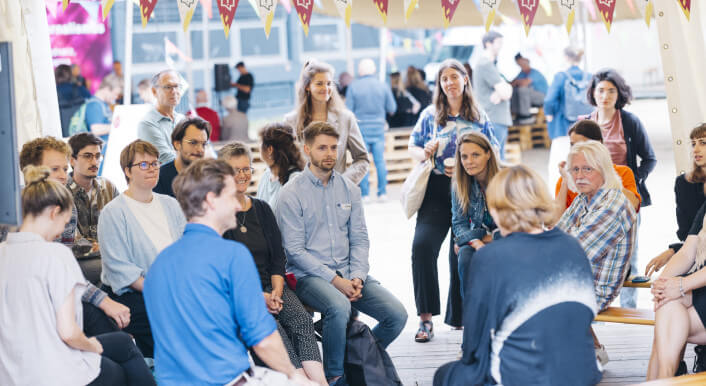
The German government has launched an investigation; a secular court has established the responsibility of a former pope; a sanction has been imposed; a citizens’ initiative has been formed: the fact that our research has also had a direct impact in the past year shows that we are drilling in the right places.
We have a clear focus and conduct intensive research into the consequences of climate change, growing inequality, the radicalisation of the political right and political influence by autocratic regimes. Our aim is to support a strong, courageous democratic society. Our research regularly has a direct impact.
Our reporters present some of the highlights of CORRECTIV’s research here:
Government investigates state-owned bank
In September, together with our Paraguayan partner media El Surtidor, we were able to uncover that the state development bank DEG had been co-financing deforestation in Paraguay for years – with the backing of the German government.
In response to our research, the Left Party in the Bundestag initially demanded DEG’s immediate withdrawal from the investment and a review of all DEG financing. The bank was also criticised by the EU Parliament. The case shows that financial institutions are the “big enablers” of deforestation and that voluntary commitments to forest protection are not sufficient, said Delara Burkhardt, environmental policy spokesperson for the SPD MEP. “Without their loans, insurance or guarantees, many economic activities that are based on the destruction of forests would not even be possible.” Shortly afterwards, the German government responded to our research: the Federal Ministry for Economic Cooperation and Development (BMZ) called for a review of the project. The latest status: DEG has commissioned an “external validation of the areas”, as the BMZ announced. The investigation will probably take quite some time. Of course, we will stay tuned for you.
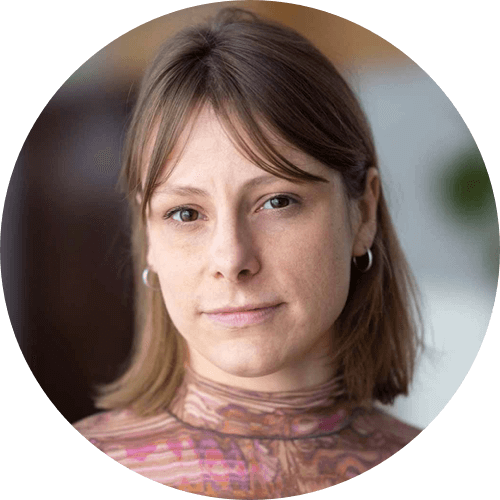
The end of a scandalous company
In May, CORRECTIV, together with the Swiss broadcaster SRF, uncovered systematic discrepancies at the Swiss assessment company PMEDA: The company assessed the ability to work of ill people on behalf of the Swiss social security system. It was headed by a German doctor and mainly used German doctors, “flight doctors”, as the Swiss media wrote. Reports about dubious methods at PMEDA had been accumulating in Switzerland for years; there was talk of sloppiness and inconsistencies in the expert reports.
The research showed that the expert reports were full of errors – which generally appeared to be to the detriment of the insured persons. People who were demonstrably seriously ill and who were categorised as fit for work by PMEDA doctors were subsequently denied a pension.
Five months after the research was published, the authorities ended their cooperation with PMEDA. An independent review found “serious formal and substantive deficiencies”. The final chapter followed at the end of November: the Swiss commercial register revealed that the company was being closed: PMEDA is in liquidation.
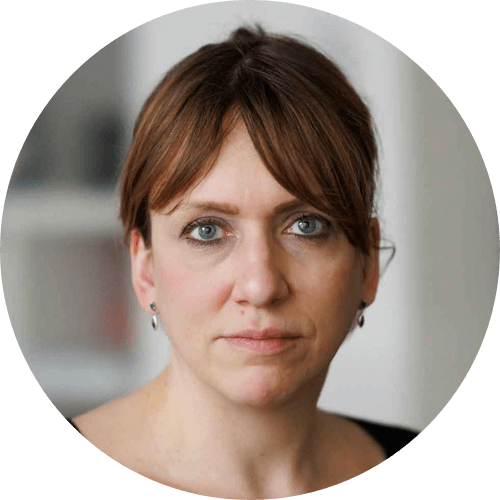
CORRECTIV lawsuit against a federal state successful
It is quite remarkable that we had to sue an authority to obtain information about the largest water users. In the end, we were successful.
In the research for our focus topic “The fight for water”, we continuously show that conflicts over water are intensifying throughout Germany. With our groundwater atlas, we have made it clear that groundwater levels in Germany have fallen drastically in recent decades. Most recently, we showed that the coal company Leag is jeopardising the drinking water supply of an entire region.
Our contacts were not always cooperative. For example, when we asked the federal states about the largest industrial water users, many authorities refused to provide us with the information. In Saxony-Anhalt, we ended up going to court. And we were successful: shortly before the Halle Administrative Court was able to pass judgement, the Saxony-Anhalt State Administration Office buckled and provided the requested information.
Our lawsuit was also about transparency. After all, water is a common good in Germany and belongs to all of us. It should therefore also be made public who is using water on a large scale and, above all, for what purpose. To this end, we will continue to focus on water in the coming year.
And our research to date has not only had an impact at official level. The NGO Campact used our publications as the basis for a petition to protect drinking water from privatisation. Over 500,000 people across Germany have now signed the petition.

A pope in front of a secular court
In almost 2,000 years of church history, no secular court has ever tried the actions of a pope. But last year saw an unusual première: In June, the Traunstein District Court found that the late Pope Benedict XVI had breached his duties when he reinstated a clerical abuser.
The civil lawsuit against the abuser, the Archdiocese of Munich and Freising and the German Pope was the result of years of CORRECTIV research. It investigated the responsibility of Cardinal Joseph Ratzinger, who later became Pope, for the abuse priest Peter. H. in the Upper Bavarian parish of Garching an der Alz. Benedict XVI died on New Year’s Eve 2022, but the plaintiff’s claims were passed on to his heirs in a civil lawsuit.
For years, media outlets around the world struggled to prove the responsibility of the then Pope, as he was directly involved with the abusive priest H. CORRECTIV was finally able to show that Ratzinger was responsible for the priest’s reinstatement after his conviction for sexual abuse. We came across a letter in which Ratzinger, as head of the Congregation for the Doctrine of the Faith, authorised the priest to celebrate Mass with grape juice. This correspondence also explicitly dealt with the priest’s known offences at the time. Shortly afterwards, H. was appointed to the parish of Garching, where he abused several boys.
Research into the letter has now led to the Traunstein District Court continuing the proceedings against the heirs of the German pope. The court is currently looking for the heirs, while efforts to beatify the German pope have since fallen silent.
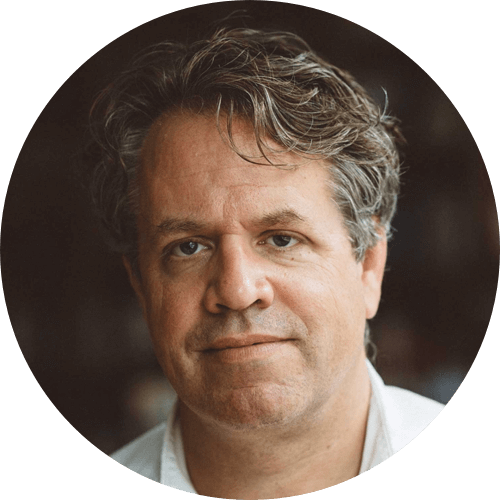
Municipal utilities withdraw from gas lobby organisation
Most municipal utilities are publicly owned – and as such should be committed to socially and politically agreed goals such as the energy transition. However, our research revealed that more than 70 municipal utilities were paying six-figure annual membership fees for the lobby organisation Zukunft Gas.
Shortly after our publication, a quarter of the almost 100 municipal utilities and regional energy suppliers did indeed withdraw. For example, Stadtwerk am See in Friedrichshafen, Stadtwerke Eutin and Gelsenwasser Energienetze GmbH, which manages the gas networks of four dozen towns and municipalities in North Rhine-Westphalia, cancelled their contracts. This means that CORRECTIV was able to trigger a discussion in the cities about their one-sided lobby subsidies.

Sanctions against Iranian internet service
In October 2022, investigative research by CORRECTIV, taz and netzpolitik.org revealed how the Iranian regime controlled the internet and used connections to Germany. The focus was on the company Abr Arvan, which cooperated with the German company Softqloud GmbH. This partnership gave Abr Arvan access to international data centres.
The reporting has significant implications: The EU and the US have placed Abr Arvan on their sanctions lists, and Softqloud has subsequently cut ties with Abr Arvan. This shows how investigative journalism can lead to exposure and action against corporate practices that potentially undermine human rights and internet freedom.
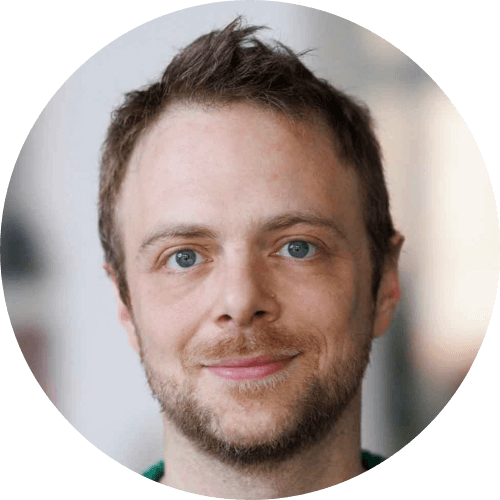
Citizens’ initiative fights against investor
A planned giant solar park around 80 kilometres from Berlin, an agricultural company and a forest that is home to many endangered animal species: In May 2022, we reported that the Lindhorst Group was planning to build a huge solar power plant with a commercial and industrial park on the site of a forest.
Up until the time of publication, there was virtually no criticism of this – as the forest has been cordoned off for many years due to military residues, hardly any local residents had any connection to the biotope. But precisely because people had hardly any access to the area, many rare species became native to it. The investor, the Lindhorst Group, has made a name for itself primarily with mass livestock transport and intensive farming, but the group is increasingly focussing on supposedly green projects – such as solar parks, including on agricultural land – and is engaging in environmental PR; critics speak of greenwashing.
CORRECTIV’s reporting triggered a local initiative and political debate about the future of the forest: A citizens’ initiative has formed and is fighting to preserve the forest. In June, Lindhorst already tried a compromise: the solar park will now be a little smaller, the company group announced. But environmentalists and local residents continue to protest against the planned deforestation. A supposed dilemma: solar areas need to be expanded for the energy transition. However, this case shows that major investors are not always looking for suitable areas, but rather which areas can be utilised as cheaply as possible. Recently, even the mayor of the responsible municipality of Bad Freienwalde distanced himself from the project.

Saarland calls for a ban on work contracts in the parcel industry
In July, together with Saarländischer Rundfunk and the Nordsee-Zeitung, we were able to uncover how Amazon favours the exploitation of drivers in subcontractors.
In Germany, the online mail order company uses hundreds of such officially independent courier companies. In the past, Amazon has always emphasised how independently these courier companies could operate. And did not consider itself responsible when poor working conditions became known there. However, internal documents show how the logistics giant puts the courier companies under pressure and monitors their drivers at every turn.
In September, the Saarland state parliament subsequently passed a resolution calling for the nationwide Parcel Carrier Protection Act to be tightened. According to the state parliament, companies such as Amazon should no longer be allowed to work with subcontractors or conclude contracts for work and labour. This is similar to what is already the case in the meat industry.
The Parcel Carrier Protection Act is currently being evaluated by the Federal Ministry of Labour and Social Affairs. The results should be available by the end of 2023.
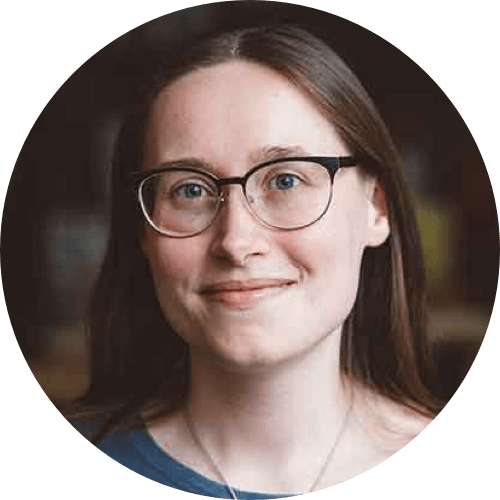
The systematic turn of the AfD to Russia
In the polls, the AfD is going from record result to record result. In the state elections in Bavaria and Hesse, it was able to gain up to five per cent of the vote. With increasing success, the AfD is becoming more radical; the Office for the Protection of the Constitution has already classified many state associations and the youth organisation as “right-wing extremist”.
According to current polls, the AfD could reach 30 per cent next year in the European elections, local elections and state elections in Saxony, Thuringia and Brandenburg.
In the heated debate on how to deal with the AfD, CORRECTIV has focussed on an aspect that has not yet been systematically worked out in this way. On its tenth anniversary, the AfD transformed itself from a party with ties to the West into a party orientated towards Russia. We have traced this shift on the basis of speeches, trips and programmes in The Alternative for Russia. The research shows how the fighting words of the Russian nationalists also penetrate the speeches of AfD politicians and the AfD’s programmes.
The research has triggered a broad debate in Germany about the AfD’s ties to Russia. Various media outlets, from Deutschlandfunk radio to local newspapers, took up our analysis of the AfD’s turn towards Russia, and leading politicians also picked up on the research.

Two justice ministries examine rules for the distribution of fines
This topic has been on my mind ever since CORRECTIV came into existence. Judges and public prosecutors in Germany distribute millions of euros every year from discontinued criminal proceedings. They are free to decide which organisations receive money. However, there has been criticism of the lack of transparency for years. Over the past nine years, we have used a database to make transparent to whom more than one billion euros have been distributed. And we uncovered several cases in which related organisations were receiving funding. As a result, the rules for the distribution of fines were changed in several federal states and in some cases also made more transparent.
In our latest publication, we are using a different lever by working with local media from all over Germany via our CORRECTIV.Lokal network. They reported in more than 60 articles at local level. Subsequently, two federal states began to scrutinise the regulations. This is particularly interesting in the case of Baden-Württemberg, as it is the only federal state where the judiciary does not publish the flow of funds on a state-wide basis. This made it almost impossible to carry out checks and conflicts of interest went unnoticed. Persistence pays off.
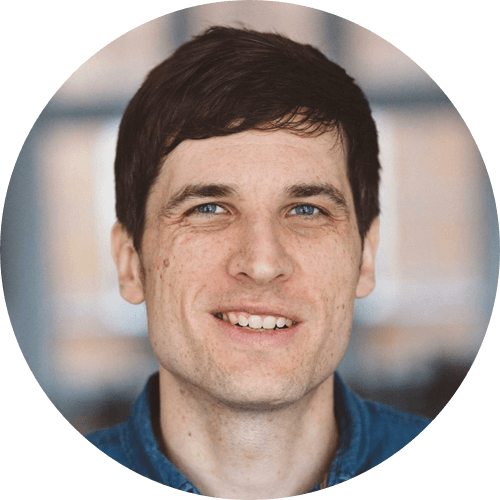
German weapons for Russia – Will the deliveries simply continue?
At the beginning of November, we uncovered that despite Russia’s war of aggression against Ukraine, firearms and ammunition from Western manufacturers continued to reach Russia on a large scale until at least the middle of this year. Also from Germany. And this despite the current sanctions.
The reason is that these are officially hunting and sporting weapons. Although these cannot be sold directly to Russia, they can be sold abroad. And our research showed that the hidden supply chains apparently function well, for example via Kazakhstan.
After we published our research, the Ravensburg public prosecutor’s office became active. Since then, it has been examining whether it can initiate an official investigation into the hunting weapons manufacturer Blaser.
In Saxony-Anhalt (where one of the ammunition manufacturers concerned is based), the Left Party parliamentary group put an official question to the state government asking whether it could stop these deliveries. The enquiry is now also being discussed at EU level. The question is whether the European Union could restrict exports of civilian firearms more than it has done so far.
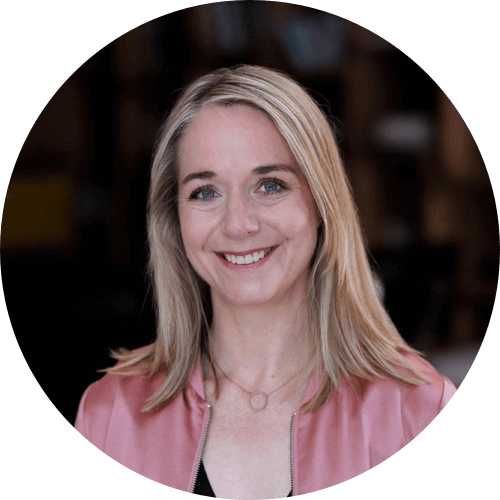
University suspends controversial programme with China
In March, together with colleagues from Deutsche Welle, we reported on a top Chinese scholarship, the so-called China Scholarship Council (CSC). To do this, we evaluated current contracts that students have to sign. They have it all: They commit themselves to unconditional loyalty to the state, their parents have to vouch for them and are not allowed to leave the country. Failure to comply can result in high penalties.
Experts and politicians strongly criticized this practice; This would prevent students from exercising their right to freedom of expression at German universities. Based on our reporting, the University of Erlangen decided to suspend the program. Since then, students with the CSC scholarship have no longer been admitted there.
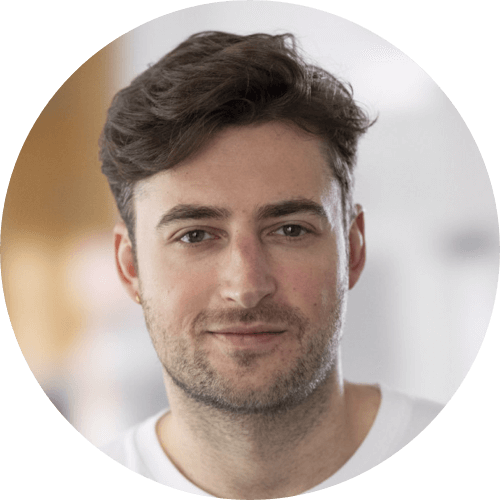
The coal company and the water: journalism on stage
On September 23rd, “Das Kraftwerk” premiered, directed by Aram Tafreshian, a play based on CORRECTIV research. The information we had gathered over months transformed into people and stories. What coal mining in Lusatia means for the water supply and, above all, for the people in the region could be experienced and, above all, felt.
Leag has now publicly paid five million euros for a waterworks in Frankfurt (Oder) so that the sulfates washed out by mining can be better diluted. In return, the city pledged never again to create the impression that mining was affecting water quality. A highly controversial deal.
After the standing ovation, journalists spoke to the audience in the theater foyer. Many of them come from the region themselves and know the influence of the Leag coal company. Theater and journalism, a stage ensemble, journalists and spectators have never been so close.
The play has since become the talk of the town in Cottbus and all tickets are sold out. It is the most-seen piece in the Kammerspiele at the State Theater.
A week after the premiere evening, the Cottbus State Theater invited people to a panel discussion. The special thing: The person who was criticized in our article because of the Leag silence deal traveled there himself. Which editorial team already speaks on stage with the criticized people from their texts? The mayor of Frankfurt (Oder) René Wilke responded to our criticism. There was passionate discussion and argument for more than two hours. We will continue to work on the topic.
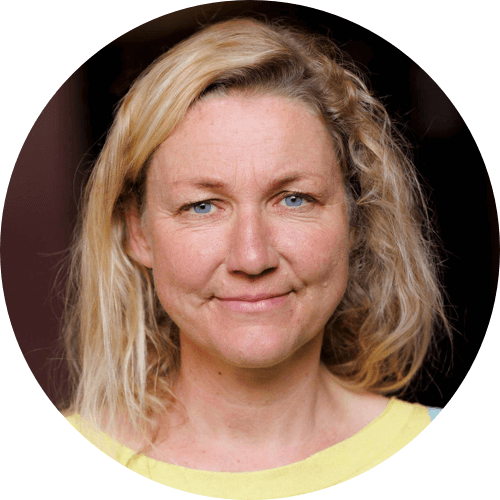
Millions of people read fact checks from CORRECTIV
Fighting disinformation sometimes feels like trying to put out a forest fire with a water hose. There is far more disinformation being spread with immense power on social networks than there are fact checkers who can counteract it with transparently researched facts. Nevertheless, we carry on. We have published more than 450 fact checks that have been read millions of times, and more than 100,000 people have subscribed to our newly launched WhatsApp channel this year. We were particularly concerned with issues relating to migration, climate change, but also the war in Ukraine and the Middle East.
But to really understand why disinformation threatens democracy and our coexistence, how false claims are used as propaganda tools and who is behind it, fact checks alone are not enough. That’s why we produced a podcast. In 6 episodes we follow the traces and actors of disinformation in the Ukraine war and explain how we can protect ourselves and others from being manipulated.
We are grateful when readers send us messages that we can help them finally get clear facts on a topic and thus be able to enter into discussions with others. That’s exactly why we continue!
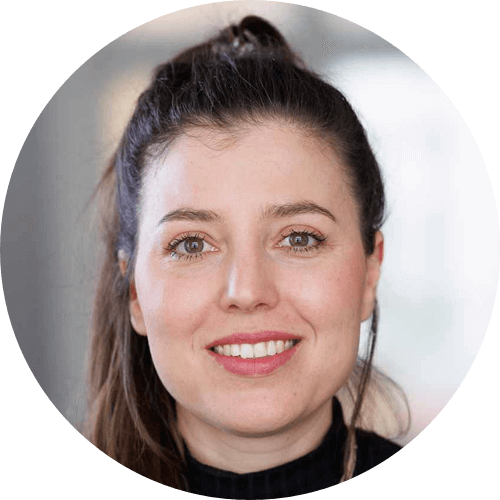
Our goal is an informed society in a strong democratic environment. We want to provide information so that everyone can develop an informed opinion. We uncover grievances and monitor what develops for the better. We create ways for many people to engage in open research and open debates about what solutions look like. When it comes to asserting information rights, we fight in court.
To do this, our reporters are out and about, contacting sources, digging through documents, evaluating the results of our investment research – the CrowdNewsroom – or presenting their results on site.
